Despite the nuclear deal, top Iranian officials insisted that Tehran and Washington are not moving towards rapprochement – or cooperating on any other issues. “We allowed negotiations with the U.S. only on the nuclear issue for certain reasons, in other areas we did not and will not allow negotiations with the U.S.,” Supreme Leader Ayatollah Ali Khamenei explained in a speech on September 9. In August, 202 lawmakers issued a joint statement saying “we should never stop confronting arrogance and hegemony.” They cited the United States as a “perfect example of arrogance in the world.”
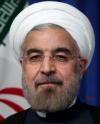
At the same time, a few other leaders suggested that the two countries could engage on other issues or begin to improve their relationship. “We are capable of settling other regional and global issues through negotiations as well,” President Hassan Rouhani said in July, according to Iranian media. “I am telling U.S. authorities and politicians that you should decide and make a major shift in policy.” In September, Foreign Minister Mohammad Javad Zarif said proper implementation of the nuclear deal could “create an opportunity for the U.S. to at least restore some Iranians' lost confidence.”
The following are excerpted remarks from Iranian officials, military leaders and clerics.
Supreme Leader Ayatollah Ali Khamenei
“Of course, methods of hostility and harming might be modernized; however, the political, economic and cultural officials should be careful in order not to be trapped by the enemy's pre-determined plan and that any decision willingly or unwillingly should not help hostile policy of the bullying powers.”
—Aug. 26, 2015, in a meeting with President Hassan Rouhani and his cabinet
“They [Americans] thought this [nuclear] deal - and it is not clear if it will be passed in Iran or in America - will open up Iran to their influence. ... We waste no efforts to shut ways of infiltration into the country. We'll allow neither economic, nor political, nor cultural intrusion of U.S.”
“The US is fully devoid of human ethics and embarks on wickedness and crime with no bridle and under the guise of attractive words and smiles.”
“Creating killer, insolent and tyrant Takfiri groups, which Americans have admitted to their role in creating them, is the most important tool for stoking seemingly religious divisions among nations, which unfortunately, some naïve Muslims have been fooled by this conspiracy and plot due to their lack of insight and they have been embroiled in the enemy’s plot.”
President Hassan Rouhani

“We solved the nuclear issue at the negotiating table. We are capable of settling other regional and global issues through negotiations as well.”
"I am telling U.S. authorities and politicians that you should decide and make a major shift in policy.”
Foreign Minister Mohammad Javad Zarif
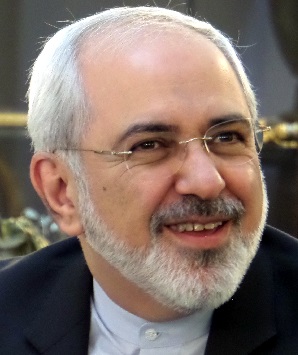
“Our people have lost confidence in the U.S. policies and proper implementation of the nuclear agreement would create an opportunity for the U.S. to at least restore some Iranians' lost confidence.”
—Sept. 1, 2015 to reporters in Tunis
Parliamentary Speaker Ali Larijani

“We have seen how the United States adopted different schemes to extend its influence in the country, we have experienced its actions against the will of our nation.”
“You noticed how they [Americans] managed to maintain networks of influence in the armed forces, among our politicians and academics and businessmen.”
"So the warning by the Supreme Leader of the Islamic Revolution should be deemed as a realistic and accurate one and people should be sensitive about it."
—Aug. 19, 2015, during a session of parliament
“There are practical ways of course [to free Americans held in Iran]. For example, there is a number of Iranians in prison here [in the United States]. Definitely for matters of this sort, one can come up with solutions. I think your politicians know about those ways… That's one way [prisoner exchange]. There are other ways that the judiciary systems of the two countries can come up with. It is the judiciary that has to decide about it.”
Islamic Revolutionary Guards Corps (IRGC) Commander Mohammad Ali Jafari
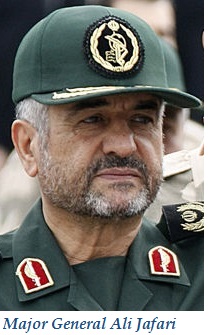
“The enmity against the Iranian nation by the U.S. has not lessened, and it has been increased."
“We should not be deceived by the U.S. It wants to infiltrate into Iran, resorting to new instruments and method.”
—Sept. 1, 2015, in remarks via the Revolutionary Guards website and the Associated Press
“The IRGC is strongly standing beside the brave and faithful people of Islamic Iran and thanks to this resistance, sympathy and unity of words and with God's help and assistance, we will not allow the hegemonic powers to exercise influence on our country in any area.”
Assembly of Experts Chairman Ayatollah Mohammad Yazdi
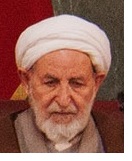
“We have to be careful for the Joint Comprehensive Plan of Action (JCPOA) not to change [our] foreign policy. Iran considers the U.S. as its top enemy and the crimes it is committing are uncountable.
“We have to tell the U.S. that they will definitely take to their grave the dream of Iran becoming their consumer market. … We are not to talk about bilateral and trilateral relations and the gradual flow of their companies into Iran.”
—Sept. 1, 2015 in an address to the Assembly of Experts
Senior Advisor to the Supreme Leader Ali Akbar Velayati

“The Islamic Republic of Iran is the first power in the region and it plays an important role in supporting the resistance line against the U.S. hegemony and Zionists' expansionism, and it will not allow the U.S. to influence the region for different reasons.”
“First the U.S. influence in allied and friendly countries is not acceptable to Iran, and Tehran doesn’t allow Washington to spread its clout in those states again; second, if the Americans influence the regional states, the way will be paved for their penetration in other countries.”
—Aug. 20, 2015, according to the press
“We have never been optimistic about the U.S. officials, and the measures and steps that they have taken are in line with their own interests.”
—Sept. 3, 2015, in remarks to Fars News Agency
202 Members of Parliament
“We feel obliged to defend the thoughts of Imam Khomeini, who said shouting 'down with America' will bring about its collapse, and the ideas of Imam Khamenei who also said by this agreement they were seeking to infiltrate into the country; we want to entirely block this possibility, and we would not allow neither America's economic influence nor its political and cultural influence to be inflicted upon our country. On the basis of the Quran’s principles, we should never stop confronting arrogance and hegemony, and currently America is a perfect example of arrogance in the world.”
Basij Force Commander Brigadier General Mohammad Reza Naqdi
“The White House always supports the world dictators, and our hostility towards the U.S. is profound and may not be resolved through talks.”
“The Zionist regime [Israel] is now surrounded by resistance groups and all U.S. bases in the regional states are within the range of the missiles of the Islamic Revolution forces.”
—Aug. 30, 2015 in an interview with al-Alam news
“No doubt, Iran's nuclear issue is not the cause of the U.S. problem with us; they actually have a problem with Iran's Islamic establishment in essence.
“The Americans see themselves as the owner of the world and therefore, they don't sit silent when they see independent nations like the Iranian nation.”
—Sept. 10, 2015 in a speech
IRGC Political Deputy Brigadier General Rasoul Sanaei Rad
“The U.S. is seeking to exploit the Joint Comprehensive Plan of Action (JCPOA) as a way of gaining influence upon Iran, which can have multiple economic, political, and cultural aspects.
“If we fail to be careful enough, the U.S. will immediately penetrate into our country, and greed is a decisive factor for Americans to seek influence on Iran.”
—Sept. 2, 2015, in remarks via Mehr News Agency
Brigadier General Ahmed Vahidi, President of the Strategic Defense Studies Center
“By weakening and eliminating the Resistance Axis, America is looking for influence in the region; therefore, strengthening the resistance front would be a natural and logical strategy to confront the U.S. policies in the region.”
“Currently the Islamic Republic of Iran is taking measures to confront the massive terrorism which has been brought by the West particularly the US.”
“We should avoid the America’s influence in the region because based on Imam Khomeini’s remarks, the US is the Great Satan and its influence will bring us numerous problems.”
—Aug. 29, 2015, in remarks via Mehr News Agency
Khamenei’s Deputy Representative to the Revolutionary Guards Abdullah Haji Sadeqi
“We might have agreed on the nuclear issue, but this does not mean the end of fight or reconciliation with the global arrogance [the United States].”
Ayatollah Mohammad Ali Movahedi Kermani
“Americans know that if they want to renew their political hegemony, they will have to opt for the cultural hegemony and are, thus, thinking of carrying out such an absurd idea.”
“They will remain our enemy as long as Islam prevails, because the U.S. feels hostility towards Islam.”
“The U.S. and its allies should know that we will not stop supporting the [anti-Israeli] resistance and Palestine.”
—Aug. 20, 2015, in a sermon at Friday prayers
“[Reaching a] nuclear deal with the P5+1 [world’s six major powers] does not mean reconciliation with US.”
—Aug. 21, 2015, in a sermon at Friday prayers
Photo credits: Javad Zarif by Robin Wright, Ali Jafari via President.ir; Yazdi via Assembly of Experts website, Velayati by http://en.kremlin.ru/ via Wikimedia Commons; Larijani by Harald Dettenborn [CC BY 3.0 de (http://creativecommons.org/licenses/by/3.0/de/deed.en)], via Wikimedia Commons

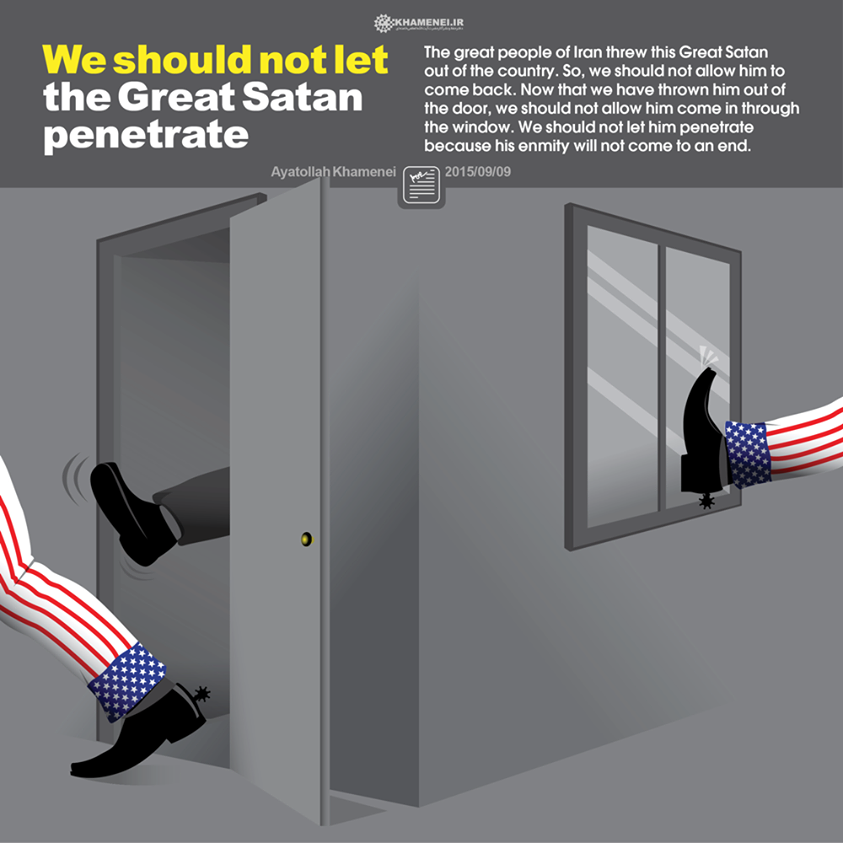
 “We solved the nuclear issue at the negotiating table. We are capable of settling other regional and global issues through negotiations as well.”
“We solved the nuclear issue at the negotiating table. We are capable of settling other regional and global issues through negotiations as well.” “We have seen how the United States adopted different schemes to extend its influence in the country, we have experienced its actions against the will of our nation.”
“We have seen how the United States adopted different schemes to extend its influence in the country, we have experienced its actions against the will of our nation.” “We have to be careful for the Joint Comprehensive Plan of Action (JCPOA) not to change [our] foreign policy. Iran considers the U.S. as its top enemy and the crimes it is committing are uncountable.
“We have to be careful for the Joint Comprehensive Plan of Action (JCPOA) not to change [our] foreign policy. Iran considers the U.S. as its top enemy and the crimes it is committing are uncountable. “The Islamic Republic of Iran is the first power in the region and it plays an important role in supporting the resistance line against the U.S. hegemony and Zionists' expansionism, and it will not allow the U.S. to influence the region for different reasons.”
“The Islamic Republic of Iran is the first power in the region and it plays an important role in supporting the resistance line against the U.S. hegemony and Zionists' expansionism, and it will not allow the U.S. to influence the region for different reasons.”